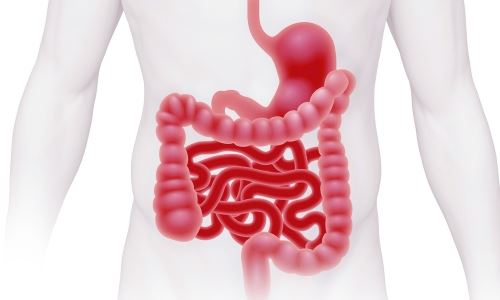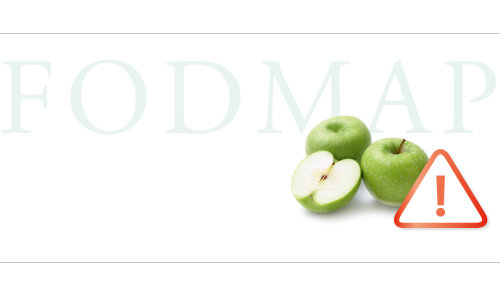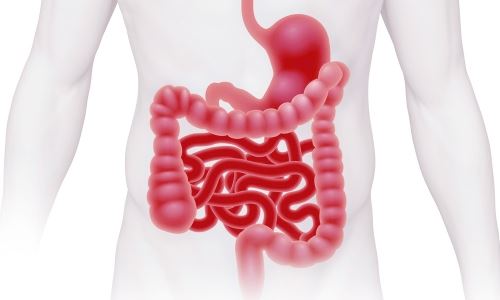Professional articles
Here you will find a selection of independently written articles taken from our healthcare professional journal - The Forum'. If you would like to register to receive a twice yearly electronic copy of The Forum, please click HERE.
Professional articles
14
The Intestinal Microbiome: Exploring a New World
The whole of the bacteria hosted in our intestine, or the microbiome, forms a vital critical mass that interacts with our body – “for better or worse” – starting from birth. As recent studies have shown, the intestinal microbiome appears to have significant connections to gluten-related disorders.
>> Read more... <<<
>> Read more... <<<

Gut Microbiota in Health and Disease
As new evidence and better analytical techniques emerge, more information is becoming available about our gut bacteria. It is becoming clear that the type and relative amount of bacteria present in our gut plays an important role in both health and disease.
>> Read more... <<<
>> Read more... <<<

The Influence of the Microbiome on Gluten-Related Disorders
This short article provides an overview of the differences in microbiota which exist in gluten-related disorders, with a particular focus on coeliac disease. It goes on to outline a planned controlled prospective study which examines changes in intestinal microflora in patients with wheat sensitivity.
>> Read more... <<<
>> Read more... <<<

The importance of the microbiota in the pathogenesis and treatment of coeliac disease
The importance of intestinal microbiota and role of probiotics is well documented in some clinical scenarios and conditions, for example, antibiotic-associated diarrhoea, irritable bowel syndrome. However, there are currently few studies on the relationship between coeliac disease and microbiota. This article looks to address and summarise the current knowledge base within this specific area.
>> Read more... <<<
>> Read more... <<<

Coeliac disease: the clinical chameleon
The chameleon is a well-known African reptile famous for its ability to change the colour of its skin in order to blend in with its surround-ings. In medicine, the term “chameleon-like” is used to describe diseases which can appear in many different forms. Coeliac disease, with its diverse, ever-changing nature, is one such disease.
>> Read more... <<<
>> Read more... <<<

The Global Map of Coeliac Disease
This article focuses on the worldwide epidemiology of coeliac disease. The information it contains is not only relevant for statistical purposes but also serves to formulate hypotheses on the factors which contribute to the development of this disease that is so widespread in modern society.
>> Read more... <<<
>> Read more... <<<

Nutritional adequacy of a Gluten-Free Diet
Research into the nutritional adequacy of a gluten-free diet is limited. This article looks at an ongoing Italian study with the aim of understanding more about the nutritional quality of a gluten-free diet.
>> Read more... <<<
>> Read more... <<<

Dietary adherence and the gluten-free diet
This short article looks at the issues surrounding adherence to a gluten-free diet and effect on quality of life in coeliac patients.
>> Read more... <<<
>> Read more... <<<

What is refractory coeliac disease and how is it diagnosed? An insight into current research
This article presents an overview of current understanding on refractory coeliac disease and future developments in this area.
>> Read more... <<<
>> Read more... <<<

The low-FODMAP diet for IBS management
In previous issues of the Forum we have uncovered the links between IBS and gluten sensitivity. We now consider the research behind the low FODMAP diet and it's potential application in the management of IBS symptoms.
>> Read more... <<<
>> Read more... <<<

FODMAPs: is the evidence stacking up?
A diet low in short-chain fermentable carbohydrates (FODMAPs) is fast becoming an accepted dietary treatment for irritable bowel syndrome (IBS) and other functional bowel disorders due to its powerful effect on reducing gastrointestinal symptoms.
>> Read more... <<<
>> Read more... <<<

The Low FODMAP Diet for Irritable Bowel Syndrome
IBS is a chronic and debilitating functional gastrointestinal disorder with research suggesting that it effects at least 10% of the UK, European and US population.
>> Read more... <<<
>> Read more... <<<

The low FODMAP diet in practice
The following case study is based on a generic patient using epidemiological data.
>> Read more... <<<
>> Read more... <<<

R&D 2003–2013: From research to product development
At the end of 2013, the Dr. Schär Research and Development Department celebrated it's tenth anniversary. Virna Cerne, head of the R&D centre sets out the milestones of the last few years – in particular how the quality of gluten-free products has improved and gives a view on what might be expected in the future in this exciting market.
>> Read more... <<<
>> Read more... <<<

The Intestinal Microbiome: Exploring a New World
The whole of the bacteria hosted in our intestine, or the microbiome, ...

Gut Microbiota in Health and Disease
As new evidence and better analytical techniques emerge, more informat...

The Influence of the Microbiome on Gluten-Related Disorders
This short article provides an overview of the differences in microbio...

The importance of the microbiota in the pathogenesis and treatment of coeliac disease
The importance of intestinal microbiota and role of probiotics is well...

Coeliac disease: the clinical chameleon
The chameleon is a well-known African reptile famous for its ability t...

The Global Map of Coeliac Disease
This article focuses on the worldwide epidemiology of coeliac disease....

Nutritional adequacy of a Gluten-Free Diet
Research into the nutritional adequacy of a gluten-free diet is limite...

Dietary adherence and the gluten-free diet
This short article looks at the issues surrounding adherence to a glut...

What is refractory coeliac disease and how is it diagnosed? An insight into current research
This article presents an overview of current understanding on refracto...

The low-FODMAP diet for IBS management
In previous issues of the Forum we have uncovered the links between IB...

FODMAPs: is the evidence stacking up?
A diet low in short-chain fermentable carbohydrates (FODMAPs) is fast ...

The Low FODMAP Diet for Irritable Bowel Syndrome
IBS is a chronic and debilitating functional gastrointestinal disorder...

The low FODMAP diet in practice
The following case study is based on a generic patient using epidemiol...

R&D 2003–2013: From research to product development
At the end of 2013, the Dr. Schär Research and Development Department ...
